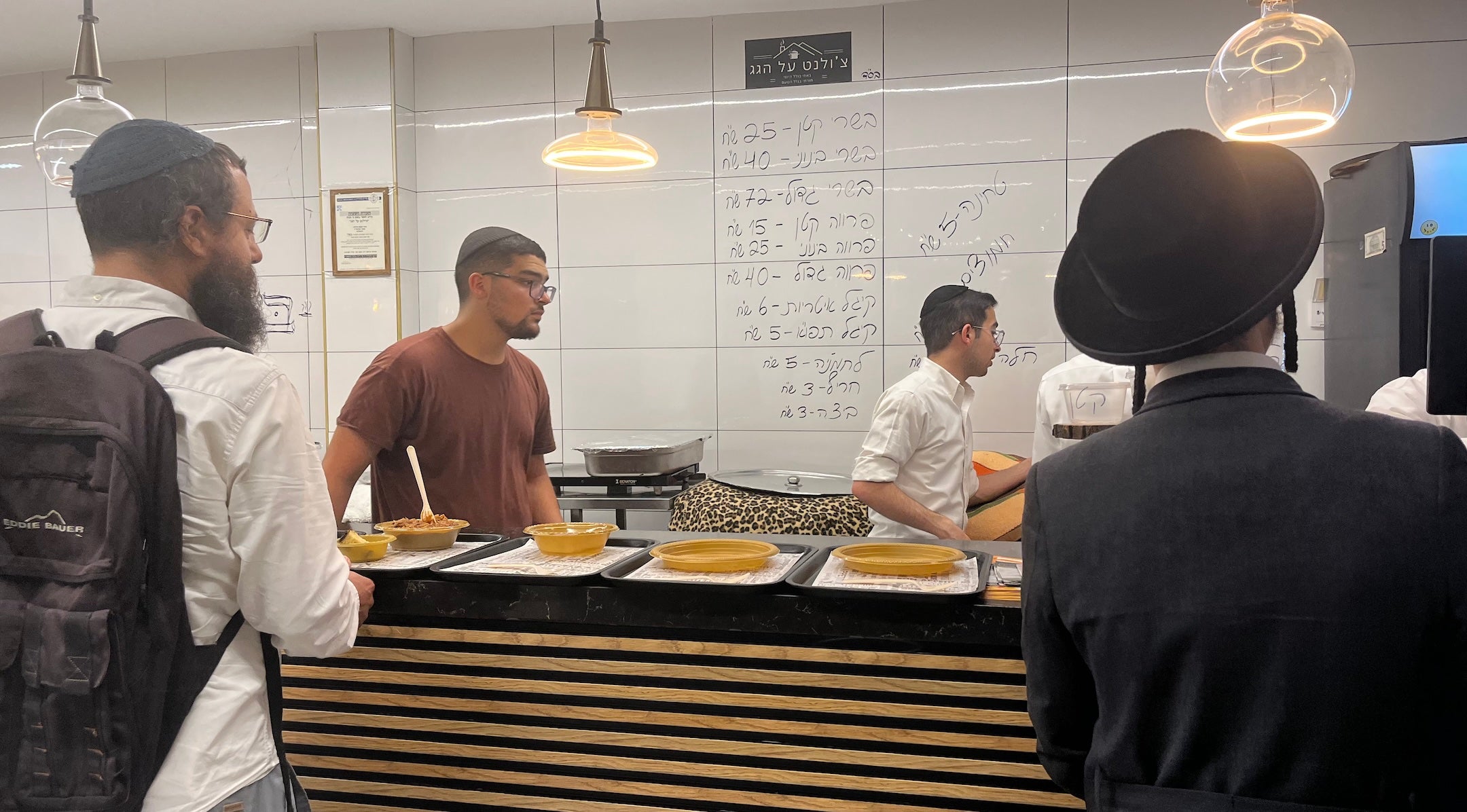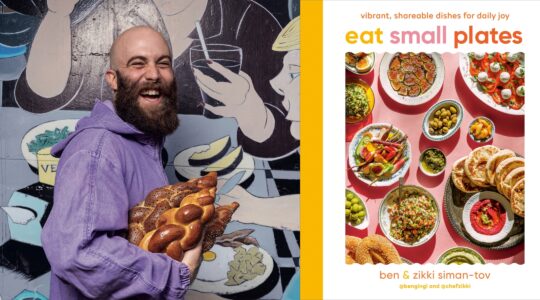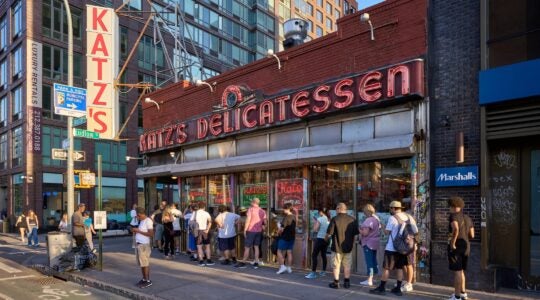JERUSALEM — When the Tel Aviv light rail opened in the summer of 2023, it shaved travel time from the city’s southern neighborhoods to the haredi Orthodox city of Bnei Brak to just 20 minutes. For some, the new route increased access to a burgeoning Thursday-night tradition: sitting down for steaming bowls of cholent, the slow-cooked Ashkenazi Shabbat stew.
“For me, having a bowl of cholent on Thursday night adds a little bit of Shabbat’s holiness into the end of the week, and deepens my connection to the ultra-Orthodox neighborhoods and people,” said Eliyahu Freedman, who regularly travels with his friends from his home in Jaffa to Bnei Brak for the stew.
So when a ruling from a prominent haredi rabbi this week cast doubt on the permissibility of eating cholent outside Shabbat, Freedman said he was “shocked and disappointed.”
The rabbi, Yitzchok Zilberstein, addressed the issue in his weekly bulletin on Jewish law, where he responded to a question from yeshiva students concerned about whether weekday consumption of cholent diminishes the sanctity of Shabbat.
Citing Talmudic, Kabbalistic and later rabbinic sources, Zilberstein wrote that it is “very appropriate not to eat [cholent] on weekdays, so that one can delight in it on Shabbat as is proper.” He went on to note that cholent is not only spiritually designated for Shabbat, but that its heavy ingredients may even pose a health risk when eaten without the merit of the holy day.
The ruling was quickly picked up by haredi news outlets, with some dramatic headlines interpreting the text as a formal prohibition.
But the effects of the ruling didn’t seem to ripple over into the Thursday-night pop-up restaurants that dot the cholent strongholds of Geula, within Jerusalem, and Bnei Brak. (According to Noam Ler, a cholent aficionado and author of a dedicated Google Maps list, there are 76 cholent spots across Israel; he has reviewed more than 30.)
In Bnei Brak, the restaurant Challah Viznitz was “popping with an eclectic mix” of diners — albeit Orthodox but not strictly haredi Jews, according to Melissa Weintraub, who made the trip with an Arab friend who regularly visits Bnei Brak for cholent. In Geula, the workers at Cholent al Hagag (Cholent on the Roof) said they hadn’t even heard of Zilberstein’s ruling — though a handful of diners had.
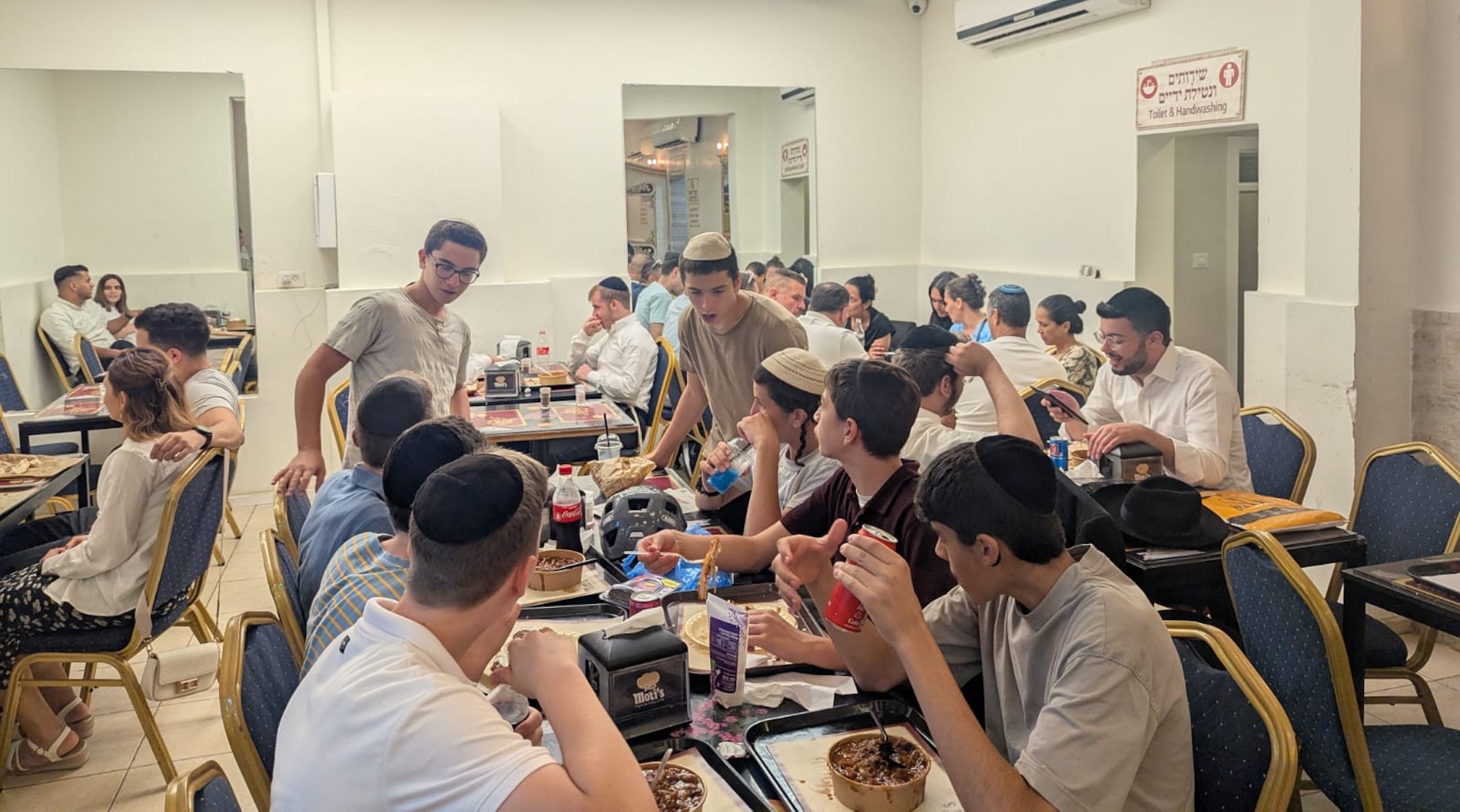
The restaurant Challah Viznitz in Bnei Brak, Israel, was filled with diners enjoying the Shabbat stew on Thursday, July 10, 2025. (Courtesy Melissa Weintraub)
Eating out of plastic bowls in an enclosed rooftop above a schnitzel shop and ice cream parlor, the diners at Cholent on the Roof ranged from packs of haredi tweens to visitors from the United States to secular Israelis. On the menu: meat cholent, pareve cholent and two kinds of kugel: potato and Yerushalmi, made with a caramel.
Behind the counter, a man wearing a velvet kippah said business was slower than usual around 9 p.m. Thursday. But it wasn’t because of the halachic ruling, which he said he found amusing, or the fact that tourism is slow after last month’s war with Iran.
Instead, he said, “It’s not the hour yet.” Cholent on the Roof is open on Thursdays — the only day it opens at all — until 2 a.m.
A few blocks down Geula’s main thoroughfare, the deli Hadar Geula was so packed that it was often impossible for customers to make their way to the tiny dining room. Many patrons were buying takeout for Shabbat — but some were pulling over to sample cholent before they headed home. A visitor from the United States said she had not heard about Zilberstein’s ruling as she hefted her haul through a narrow pathway to the shop’s front door.
One Hasidic man, who asked not to be named, said he welcomed Zilberstein’s ruling. His teenage daughter had started going out with friends on Thursday nights to cholent in their Jerusalem neighborhood of Har Nof, and he disliked the “casual hangout” it generated.
Online, the ruling drew scattered but spirited reactions. One post on X noted, “There’s no midweek cholent in the army: A holy place” — an apparent dig at haredim who avoid army service. Another user wondered if the ruling applied only to cholent or if it extended to Sephardic equivalents such as tefina and s’khina. Under one English-language article on the rabbi’s ruling, one reader recalled that Uncle Moishy, an Orthodox children’s entertainer in the 1990s, was summoned to the White House to make the dish but firmly declined, declaring in song that “you can’t make cholent on an ordinary day.”
A robust conversation — with comments ranging from nostalgic to critical — took place on a Facebook post on the topic by Freedman, a freelance journalist who has written for the Jewish Telegraphic Agency in the past. He wrote that cholent drew him to the neighborhood around Yeshiva University as a teenager in New York and was “the carrot I needed to study some extra Torah on Thursday night.” The tradition has more recently taken off in haredi strongholds in Brooklyn and Monsey, New York.

Cholent on the Roof opens in Geula, Jerusalem, for just 10 hours a week — on Thursdays until 2 a.m. (Philissa Cramer)
In the comments, Hilla Benzaken agreed, describing how Thursday-night cholent had transformed late-night get-togethers into study sessions with friends, with “cholent and wine at hand.”
Still, she sympathized with the spirit of the rabbinic ruling, saying she understood the value of distinguishing between weekday and Shabbat dishes. “My friends always laugh at me that I refuse to eat curry and Asian food on Shabbat,” she said.
Others were less measured. One commenter likened the rabbi’s position to “cutting off the source of medicine” for Jews searching for meaning, with the ruling implying that “taking in the energy of Shabbat early is a bad thing.” Another mused whether everyone could skirt the ruling by eating leftover cholent from the week before, and if so, whether that would lead to halachic grounds for making it fresh to prevent food poisoning.
Liz Nelson took issue with the broader optics of the ruling, writing that she felt “extremely cynical” seeing rabbinic focus on cholent while more serious communal issues go unaddressed.
“I do realize one can speak out about things on the level of cholent, without it being to the exclusion of caring about things like sexism, racism, abuse….still….when I see things like this, I can’t help but think ‘ah, so we’ve handled all the Real Issues I guess, such that this is what we have time to prioritize.’”
She later clarified to JTA that she was grappling with “whether I’m really being fair,” acknowledging that she wasn’t the intended audience of the rabbi’s ruling.
A tangential plot twist emerged on Thursday when the haredi Emess news outlet ran a headline reading, “After the surprise ruling: This place will no longer serve cholent.” The ensuing article reported that the Israel Prison Service, citing food safety concerns, announced that “as of this Shabbat, cholent will no longer be served to criminal inmates. Instead, they will receive baked potatoes, schnitzel, vegetables, pickles, bread and fruit.”
But it turns out that the decision had nothing to do with Zilberstein’s ruling. Instead, the decision followed reports that the cholent was often returned uneaten and even spoiled. Early feedback indicated that prisoners were pleased with the new menu, the report said.
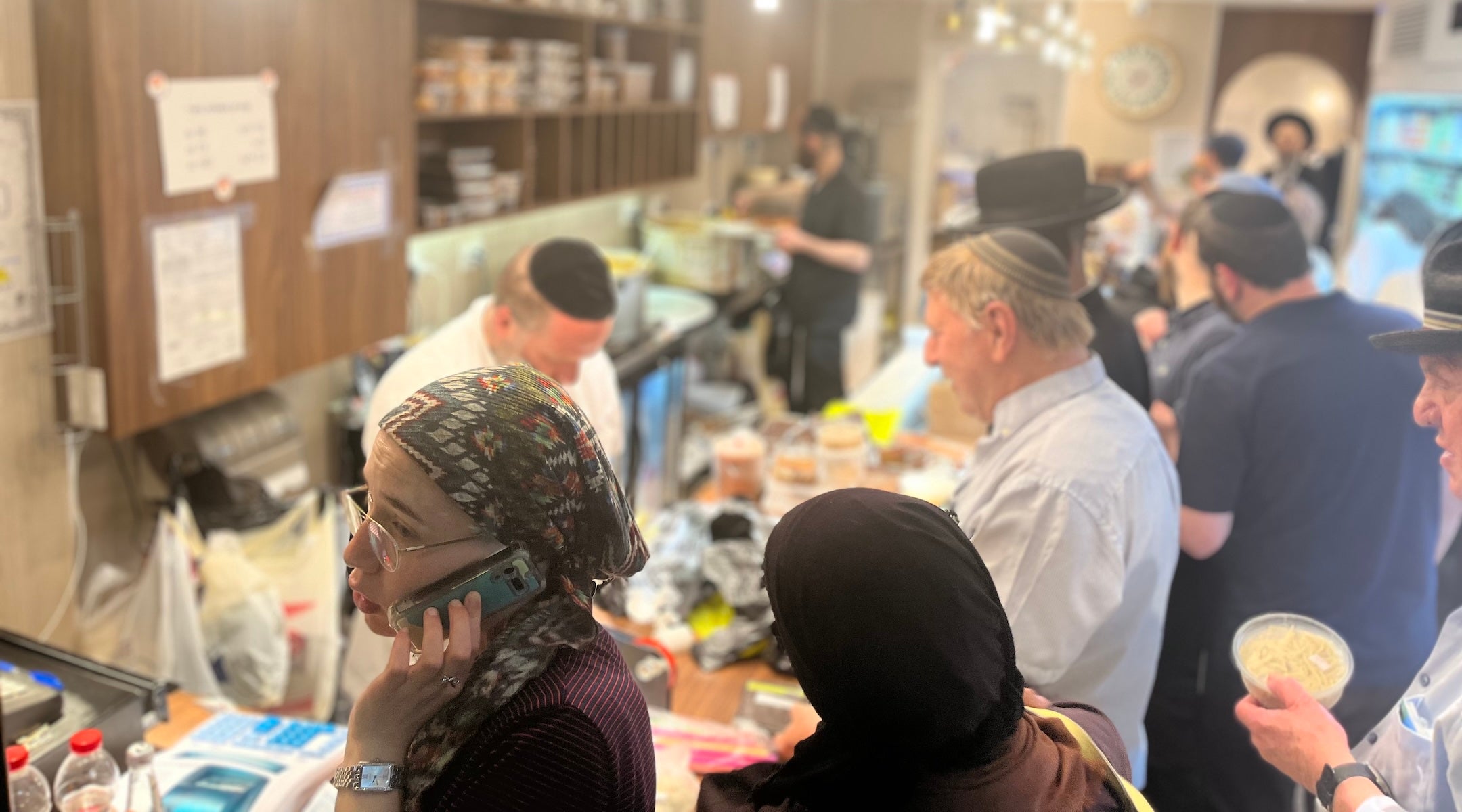
The cholent served on Thursday nights at Hadar Geula in Jerusalem is scooped from giant pots behind a packed counter. (Philissa Cramer)
The simmering public response about Zilberstein’s ruling was enough to provoke a partial retraction. His grandson, Rabbi Chaim Malin, emphasized that the original response was not meant to impose a universal ban, but was rather intended as a recommendation for those seeking to elevate the uniqueness of Shabbat.
The statement noted that cholent served at mitzvah meals — weddings, bar mitzvahs and other religious celebrations — is fully permitted, as is the Thursday-night practice of serving it in yeshivas, with the rabbi clarifying that students should follow the guidance of their yeshiva leadership. The statement concluded: “Let the humble eat and be satisfied.”
Freedman posted an update with the clarification to his Facebook page, prompting Benzaken to quip, “The cholent lobby worked hard this week.”
For now, the stew remains safe — if not from cholesterol, then at least from halachic rebuke.
JTA has documented Jewish history in real-time for over a century. Keep our journalism strong by joining us in supporting independent, award-winning reporting.
